معرفی و دانلود Buddenbrooks: The Decline of a Family از Thomas Mann
نام آلمانی کتاب:
Buddenbrooks: Verfall einer Familie
نام انگلیسی کتاب:
Buddenbrooks: The Decline of a Family
نام فارسی کتاب:
بودنبروک ها : زوال یک خاندان
نویسنده:
توماس مان
Thomas Mann
ترجمه از آلمانی به انگلیسی:
John e. Woods
معرفی و دانلود کتاب “Buddenbrooks” (بودنبروکها) اثر توماس مان
“Buddenbrooks: The Decline of a Family” (بودنبروکها: زوال یک خاندان)، شاهکار ادبی توماس مان (Thomas Mann)، نویسنده شهیر آلمانی و برنده جایزه نوبل ادبیات است. این رمان که در سال ۱۹۰۱ و در سنین جوانی مان منتشر شد، بلافاصله به یک اثر کلاسیک در ادبیات مدرن تبدیل گشت. ترجمه انگلیسی آن توسط جان ای. وودز (John E. Woods) انجام شده و با وفاداری بینظیر به متن اصلی آلمانی، عظمت دستاورد مان را در این رمان جذاب و تراژیک نشان میدهد. اگر به دنبال دانلود Buddenbrooks by Thomas Mann یا کاوش در ادبیات برجسته آلمانی و تاریخ یک خاندان بورژوا هستید، این معرفی جامع را از دست ندهید.
“بودنبروکها”: حماسه زوال یک خاندان اصیل آلمانی
“بودنبروکها” اولین رمان توماس مان است که نوشتن آن را در ۲۲ سالگی آغاز و در ۲۶ سالگی به پایان رساند. این اثر، داستان زوال و فروپاشی چهار نسل از خاندان ثروتمند بودنبروک است که در شهر لوبک، زادگاه مان، به تجارت مشغول بودند. شخصیتهای رمان دارای مابهازای بیرونی هستند و درونمایهی اصلی آن، افول و زوال فرهنگی آلمان در آستانهی گذار از قرن نوزدهم به قرن بیستم است. مان در این رمان، جامعهی بورژوای آلمان قرن نوزدهم را در طول چندین دهه با سبک جزئینگر و دقیق خود به تصویر میکشد؛ سبکی که بعدها برای او جایزهی ادبیات نوبل ۱۹۲۹ را به ارمغان آورد.
رمان، ورود مدرنیته و تأثیر آن بر یک خانواده ثروتمند بورژوا در شمال آلمان را به تصویر میکشد. در این دنیای جدید و نامطمئن، پیوندهای خانوادگی و سنتها شروع به از هم گسیختن میکنند. مان در حالی که زوال بودنبروکها را از رفاه به ورشکستگی، از سلامت اخلاقی و روانی به تقوای بیمارگونه، انحطاط هنری و جنون دنبال میکند، خواننده را به دنیایی با نشاطی خیرهکننده وارد میکند که از تولدها و مراسم تدفین، عروسیها و طلاقها، دستور پختها، غیبتها و شوخیهای زمینی شکل گرفته است. این رمان در گستردگی، غنای جزئیات و انسانیت کاملش، از تمامی وقایعنگاریهای خانوادگی مدرن پیشی میگیرد.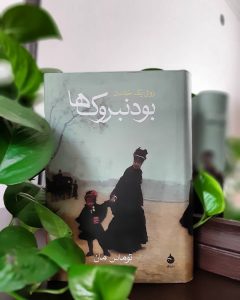
بخشهایی از ترجمه فارسی رمان “بودنبروکها”:
《گفت: “توم” و توانست به صدای خود که میرفت در هقهق گریه خفه شود، استحکامی فروخورده و تاثرانگیز ببخشد. “اگر بدانی در این لحظه چه حالی دارم، اگر بدانی. زندگی با خواهر تو سازگار نبود، به من سخت گرفت. هر بلایی که فکر کنی سر من آمد. گناه من چه بود؟ اما من همه سختیها را تحمل کردم، بی آنکه ناامید بشوم. توم! قضیهی گرونلیش، پرمانهدِر، واینشنک. من ناامید نشدم، چون هر بار که به ارادهی خداوند زندگیام از هم میپاشید، در هم نمیشکستم، میدانستم جایی دارم، سرپناهی مطمئن، خانهای امن که میتوانم از نامرادیهای زندگی به آن پناه ببرم. حتا همین اواخر، وقتی همهچیز خراب شد و واینشنک به زندان افتاد، باز به همین خانه پناه آوردم. گفتم: مادر، اجازه هست بیایم پیش تو؟ بله، البته. توم، تو یادت میآید؟ وقتی بچه بودیم و جنگبازی میکردیم، همیشه نقطهای بود، محدودهای مشخص که در اوج درماندگی به آن پناه میبردیم. در آن محدوده کسی اجازه نداشت به کسی دستدرازی کند. آنجا میتوانستیم آرام و آسوده نفس تازه کنیم. در زندگی، خانهی مادر، این خانه، نقطهی امن من بود. توم، و حالا، حالا، فروش” …》
توماس بودنبروک گفت: «چه موجهای بلندی. ببین چهطور در زنجیرهای بیپایان یکی بعد از دیگری بیهوده و عبث پیش میآیند و سر به ساحل میکوبند. با این همه، مثل هر چیز ساده و ضروریای آرامش بخش و تسلا دهندهاند. در این چند روز من دلبستهی دریا شدهام. شاید به دلیل دوری راه بود که بیشترها کوهستان را ترجیح میدادم. حالا دیگر شوق کوهستان در دلم نیست. به گمانم در کوهستان بترسم و خجل بشوم. کوهستان بیش از اندازه خودکامه، بینظم و متنوع است. شک ندارم که در کوهستان احساس حقارت میکنم. راستی کسانی که یکنواختی دریا را ترجیح میدهند، چه کسانی هستند؟»…!
“در فاصله ی میان دو جنگ، یوهان خردسال … سرگرم بازیهای چهار و نیم سالگی خود بود. بازیهایی که هیچ آدم بالغی به معنا و مفهوم آن پی نمیبرد و از شیرینی آن خبر نداشت. … این بازیها بیش از هر چیز به تخیل بی آلایش، پرشور، نیرومند، دست نخورده و بی حد و مرز سنّ و سال بی دغدغهای نیازمند است که در آن زندگی هنوز قادر نیست به ما دست درازی کند، سنّ و سالی که در آن هنوز نه گناهی به گردن داریم و نه وظیفه ای، سنّ و سالی که در آن اجازه داریم ببینیم، بشنویم، بخندیم، شگفت زده شویم و رویا ببافیم، بی آن که دنیا هنوز از ما توقعی داشته باشد، سنّ و سالی که در آن کسانی که میخواهیم دوستشان بداریم، هنوز با بی صبری خود، آزارمان نمیدهند و در پی آن نیستند که با دیدن نخستین نشانهها و دلایل، اطمینان بیابند که در آینده به خوبی از عهده ی توقعات زندگی بر خواهیم آمد. اما طولی نخواهد کشید که زندگی با قدرت بی چون و چرای خود بر سرمان بتازد، آلوده مان کند، به راه مان بیاورد، دراز و کوتاه مان کند، تباه مان کند.”
بخشهایی از ترجمه انگلیسی رمان “Buddenbrooks”:
- “مرگ یک نعمت بود، آنقدر بزرگ، آنقدر عمیق که تنها در لحظاتی مانند این، که از آن نجات مییابیم، میتوانیم آن را درک کنیم. این بازگشت به خانه از سرگردانیهای طولانی و وصفناپذیر دردناک، تصحیح یک خطای بزرگ، رهایی از زنجیرهای آزاردهنده، برداشتن موانع بود — یک حادثه وحشتناک را دوباره به حالت عادی بازگرداند.”
-
“Death was a blessing, so great, so deep that we can fathom it only at those moments, like this one now, when we are reprieved from it. It was the return home from long, unspeakably painful wanderings, the correction of a great error, the loosening of tormenting chains, the removal of barriers—it set a horrible accident to rights again.”
-
- “اغلب، نشانهها و نمادهای مادی بیرونی و قابل مشاهدهی خوشبختی و موفقیت، تنها زمانی خود را نشان میدهند که فرآیند زوال از پیش آغاز شده است. ظهور بیرونی زمان میبرد – مانند نور آن ستاره در آسمان، که ممکن است در واقع خاموش شده باشد، در حالی که برای ما درخشانترین به نظر میرسد.”
-
“Often, the outward and visible material signs and symbols of happiness and success only show themselves when the process of decline has already set in. The outer manifestations take time – like the light of that star up there, which may in reality be already quenched, when it looks to us to be shining its brightest.”
-
- “بازیهای او معنا و جذابیت عمیقتری دارند که بزرگسالان دیگر نمیتوانند آن را درک کنند و چیزی بیش از سه سنگریزه، یا یک تکه چوب با کلاه قاصدک، شاید؛ اما بیش از هر چیز تنها به تخیل ناب، قوی، پرشور، بکر و بیحدوحصر آن سالهای شاد نیاز دارند که زندگی هنوز در لمس ما تردید دارد، زمانی که نه وظیفه و نه گناه جرأت نمیکنند به ما دست بزنند، زمانی که اجازه داریم ببینیم، بشنویم، بخندیم، تعجب کنیم و رویا ببافیم، بدون اینکه دنیا هنوز چیزی در ازای آن از ما بخواهد، زمانی که بیصبری کسانی که بسیار میخواهیم دوستشان داشته باشیم، هنوز شروع به آزار دادن ما برای مدرک، برخی نشانههای اولیه، که ما وظایفمان را با جدیت انجام خواهیم داد، نکرده است. آه، دیر نخواهد بود، و همه آن با قدرت غافلگیرکننده و خام، بر سرمان باران خواهد بارید، به ما حمله خواهد کرد، ما را کش خواهد داد، ما را منقبض خواهد کرد، ما را سوراخ خواهد کرد، ما را فاسد خواهد کرد.”
-
“His games have a deeper meaning and fascination that adults can no longer fathom and require nothing more than three pebbles, or a piece of wood with a dandelion helmet, perhaps; but above all they require only the pure, strong, passionate, chaste, still-untroubled fantasy of those happy years when life still hesitates to touch us, when neither duty nor guilt dares lay a hand upon us, when we are allowed to see, hear, laugh, wonder, and dream without the world’s demanding anything in return, when the impatience of those whom we want so much to love has not yet begun to torment us for evidence, some early token, that we will diligently fulfill our duties. Ah, it will not be long, and all that will rain down upon us in overwhelming, raw power, will assault us, stretch us, cramp us, drill us, corrupt us.”
-
- “…زمانی که زندگی هنوز در لمس ما تردید دارد، زمانی که نه وظیفه و نه گناه جرأت نمیکنند به ما دست بزنند.”
-
“…when life still hesitates to touch us, when neither duty nor guilt dares lay a hand upon us”
-
- “وجود توماس بودنبروک فرقی با وجود یک بازیگر نداشت – بازیگری که زندگیش به یک نمایش طولانی تبدیل شده است، که به جز چند ساعت برای استراحت، بیوقفه او را میبلعد.”
-
“Thomas Buddenbrook’s existence was no different from that of an actor – an actor whose lfe has become one long production, which but for a few hours for relaxation, consumes him unceasingly.”
-
- “ما بورژوازی هستیم – طبقه سوم، همانطور که اکنون ما را مینامند – و آنچه میخواهیم نجابت شایستگی است، نه بیشتر. ما این نجابت تنبل کنونی را به رسمیت نمیشناسیم، سلسله مراتب طبقاتی فعلی خود را رد میکنیم. ما میخواهیم همه مردم آزاد و برابر باشند، هیچ کس تابع دیگری نباشد، اما همه تابع قانون باشند. باید به امتیازات و قدرت خودسرانه پایان داده شود. همه باید به طور برابر به عنوان فرزندان دولت رفتار شوند، و همانطور که دیگر واسطهای بین مردم عادی و خدایشان نیست، هر شهروندی نیز باید مستقیماً با دولت ارتباط داشته باشد. ما آزادی مطبوعات، اشتغال، تجارت را میخواهیم. ما میخواهیم همه مردان بدون هیچ امتیاز خاصی رقابت کنند، و تنها تاج باید تاج شایستگی باشد.”
-
“We are the bourgeoisie—the third estate, as they call us now—and what we want is a nobility of merit, nothing more. We don’t recognize this lazy nobility we now have, we reject our present class hierarchy. We want all men to be free and equal, for no one to be someone else’s subject, but for all to be subject to the law. There should be an end of privileges and arbitrary power. Everyone should be treated equally as a child of the state, and just as there are no longer any middlemen between the layman and his God, so each citizen should stand in direct relation to the state. We want freedom of the press, of employment, of commerce. We want all men to compete without any special privileges, and the only crown should be the crown of merit.”
-
چرا “Buddenbrooks” را بخوانیم؟
“Buddenbrooks” یک رمان عمیق و چندلایه است که تصویری زنده و دقیق از جامعه آلمان در حال تغییر را ارائه میدهد. توانایی مان در جزئینگری و شخصیتپردازی، همراه با کاوش در مفاهیم مهمی چون تغییرات اجتماعی، زوال فرهنگی و جایگاه فرد در خانواده و جامعه، این کتاب را به اثری ماندگار تبدیل کرده است. اگر به رمانهای خانوادگی حماسی، ادبیات کلاسیک اروپا و مطالعهی جامعهشناختی تاریخ علاقه دارید، دانلود Buddenbrooks by Thomas Mann انتخابی ضروری است.
- لینک دانلود فایل بلافاصله بعد از پرداخت وجه به نمایش در خواهد آمد.
- همچنین لینک دانلود به ایمیل شما ارسال خواهد شد به همین دلیل ایمیل خود را به دقت وارد نمایید.
- ممکن است ایمیل ارسالی به پوشه اسپم یا Bulk ایمیل شما ارسال شده باشد.
- پسورد تمامی فایل ها www.bibliofile.ir است.
- در صورتی که به هر دلیلی موفق به دانلود فایل مورد نظر نشدید با ما تماس بگیرید.
- در صورتی که این فایل دارای حق کپی رایت و یا خلاف قانون می باشد ، لطفا به ما اطلاع رسانی کنید.
 بیبلیوفایل | بزرگترین مرکز فروش محصولات دانلودی
بیبلیوفایل | بزرگترین مرکز فروش محصولات دانلودی

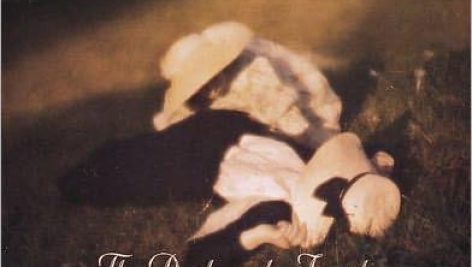
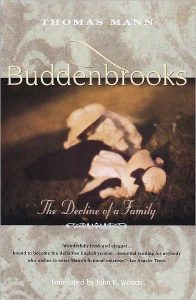

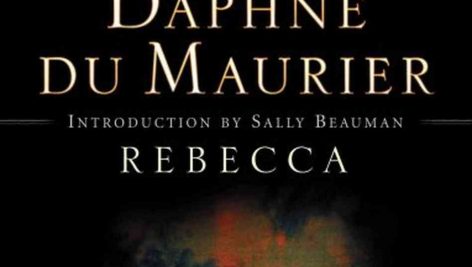




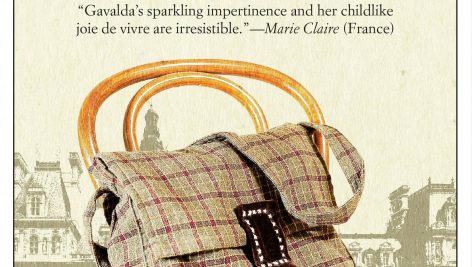


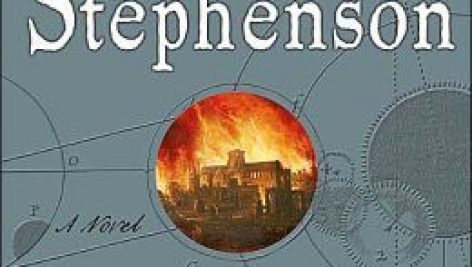
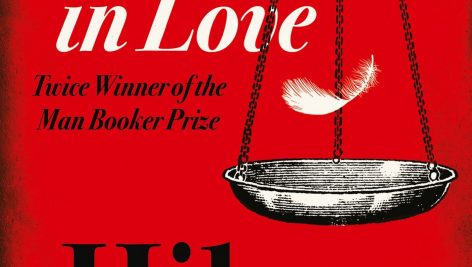

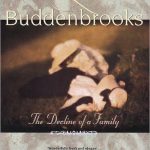
هنوز هیچ نقد و بررسی وجود ندارد.